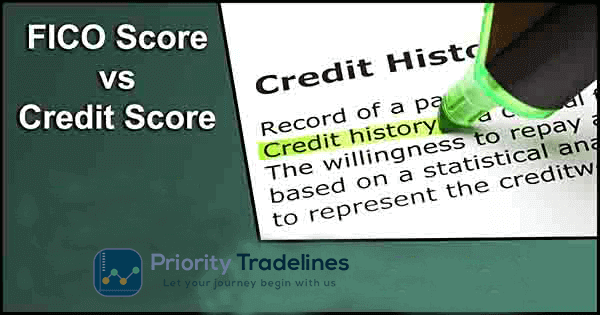The only similarity between the FICO score and Credit score is that; both models are used to predict the credit risk. Otherwise, there is a huge difference in credit score models. The FICO Credit Score is the model presented by the Fair Isaac Corporation (FICO). On the other hand, the Credit Score is brought by the Equifax score, that is also used by other two finance bureaus. To learn more about FICO Score Vs Credit Score, go through the other phases leading the difference.
Difference Leading Scoring Models
FICO Score and Credit Score are not the only models in the market. There is a variety of scoring models used to determine the creditworthiness and to make the financial decisions. Despite the fact, FICO and credit Score are the preferable models used by several people. On the basis of score models, the FICO Score has the parameters are: Payment History, Length of Credit, Amount Owed, Credit Usage and Credit Mix.
- The Excellent Score: 750 to 850
- Good Score: 700 to 749
- Fair: 640 to 699
- Need Repair: 300 to 639
In this model, the most important fact is Payment history. If you have positive payment history, you can easily manage with other financial conditions. While if you score ranges lower than 300 then you have to consider for a various method to Fix Poor Credit Rating. Among several solutions, one can take help of best Credit Repair Company. The Credit Score follow the numerical range from 280 to 850. FICO scoring or Tradeline model is based on the credit reports that are used by the users to collect the data from major credit bureaus to analyze the report and develop a scoring model.
The Credit score model gives preference to the combined set of consumer credit files or three major agencies that come up with the solo formula.
Difference In The Scoring Requirements
History of credit is taken as the major part to conduct any financial condition, but when it comes to bringing this in the scoring model, this is taken separately. The FICO requires at least six months older credit history and an account should report to CRA within six months. Credit score needs a one-month history of credit with an account reported within last two years. The Credit score offers a shorter credit history but the long time period for the reported accounts. It enables to issue the credit ratings to the consumers who are unable to qualify the FICO score.
Difference In Late Payment Determination
The history of late payment is significantly determined by these factors:
- How you paid the last late payment?
- How many accounts you had late payments?
- How many payments did you miss on an account?
FICO Score takes the late payments as it is, but the Credit score judges it differently. It chastises the late payments harshly as compared to the other credit scoring models. For example, if you have late payments on credit cards, they will have the same impact on both FICO and Credit Score. But if you have late payments only on the mortgage you will be considered to have a higher FICO Score as compared to Credit Score and one will be required to think over Rapid Rescore credit score.
The Difference In The Impact Of Credit Inquiries
One is suggested to never open too many credit cards within a short time period. Its one reason is, it can make your lender do the ‘Hard Inquiry’ to check the creditworthiness. However, both scoring models penalize the consumer having multiple hard inquiries in short time period but still they have a difference. Both use the ‘Deduplication’ which is important for auto loans. Following this the application is sent to various lenders, thereby resulting in various different inquiries. Both Scoring Models don’t count the inquiries separately. They keep them duplicate and consider as one inquiry however later the Deduplication is taken differ.
FICO uses 45 days Span for deduplicate credit inquiries and it considers only about the mortgages, students loans, and auto loans.
The Credit Score has the limit of only 14 days and it goes through the multiple hard inquiries for every credit including the credit cards.
Difference For Low Balance Collections
Both Scoring Models have penalties for the accounts which sent to collection bureaus. FICO Score does not include the collection having an original balance under $100 and the collections have been paid off. The Credit Score ignores the collection accounts have been paid off regardless it is original balance amount.
Thought both Scoring models are different nevertheless they predict the same kind of risks as well as to find whether you need to Raise Your FICO Score. It is important to keep in your mind that FICO Score Vs Credit Score is created independently. Their Scenarios of scoring may vary but significantly they are based to calculate the risk factor.



